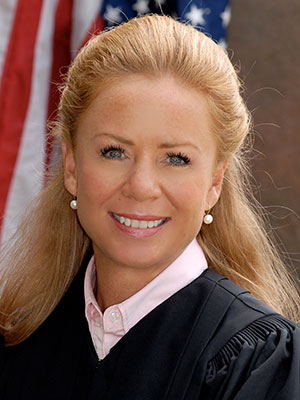
April 21, 2021 – Last week, fellow Wisconsin Supreme Court justices elected Justice Annette Ziegler to serve as the next chief justice, effective May 1, 2021. Justice Ziegler succeeds Chief Justice Patience Roggensack, who did not seek reelection.
Justice Ziegler, first elected to the court in 2007, becomes the third consecutive woman to serve as chief justice, following in the footsteps of the late Shirley Abrahamson (Chief Justice, 1996-2015) and Patience Roggensack (Chief Justice, 2015-2021).
By state constitution amended in 2015, the justices of the supreme court elect a chief justice for two-year terms. Prior to 2015, the most senior justice served as chief justice.
Per Art. VII, section 3 of the state constitution, the chief justice of the supreme court “shall be the administrative head of the judicial system and shall exercise this administrative authority pursuant to procedures adopted by the supreme court.”
Ziegler was a Former Trial Judge
A Michigan native, Justice Ziegler obtained bachelor’s degrees from Hope College in Michigan before earning a law degree from Marquette University Law School in 1989.
After law school, Ziegler practiced law as a civil litigator in private practice, as well as an assistant U.S. attorney for the Eastern District of Wisconsin. She was appointed to the Washington County Circuit Court in 1997, elected in 1998, and reelected in 2004.
She was the first woman to serve as a judge in Washington County and went on to serve as a presiding judge and deputy chief judge of the Third Judicial District. She was elected to the Wisconsin Supreme Court in 2007 and reelected unopposed in 2017.
Ziegler, in a press release from the court, said her election as chief justice is an honor of a lifetime and “a long way from sweeping the floors of her parent’s hardware store.”
“I know the lessons I learned back then formed the foundation for how I will approach this awesome responsibility,” Justice Ziegler said. “I will do all I can to ensure the Wisconsin Supreme Court operates fairly and efficiently with a fidelity to the law.”
“We will make the people of this great state proud of our professionalism and collegiality, even during our sometimes vigorous debates.
“I want to thank my colleagues for their faith in me, especially Chief Justice Roggensack, who has set a wonderful example for me to follow. I’m grateful she is remaining on the Court and will be a tremendous resource for me.”
Ziegler will preside over a supreme court that will look the same next term, aside from the change at chief justice. The next supreme court election isn’t until April 2023 for the 2023-24 term. Chief Justice Roggensack’s second, 10-year term expires July 31, 2023.
Ziegler Takes Over Amid Pandemic
As the next chief justice, Ziegler assumes administrative responsibilities of a court system still facing the COVID-19 pandemic. Many circuit courts are still holding hearings by Zoom, and in-person hearings under specific safety plans in those counties.
In the court’s press release, Ziegler said her efforts “will build on the framework already in place as circuit courts throughout the state continue working to ensure their courts are operating as safely and efficiently as possible in light of the COVID-19 pandemic.”
Ziegler, whose current 10-year term as a justice expires in 2027, adds an administrative role to her duties as a jurist with a considerable body of work already.
According to SCOWstats by Marquette History Professor Alan Ball, Justice Ziegler wrote 197 substantive opinions prior to the current term.
State Bar Welcomes Chief Justice Ziegler, Thanks Chief Justice Roggensack
State Bar President Kathy A. Brost and State Bar of Wisconsin Executive Director Larry J. Martin recently issued a statement to welcome Chief Justice Ziegler as she begins her term as leader of the Wisconsin Court System.
“We look forward to her leadership and continuing to work with all seven justices to further our common goal of strengthening the relationship between the bench and the bar, advancing public trust of the legal profession, and promoting a high-functioning justice system,” Brost and Martin said.
“We also extend our sincere thanks and gratitude to Chief Justice Patience Roggensack for her leadership during her three terms. In particular, Chief Justice Roggensack led the court system through the challenges of the COVID-19 pandemic to keep it operational and justice moving forward.
“We also want to thank her for her advocacy in advancing research to ensure best practices are implemented, including the use of business courts and treatment courts across Wisconsin. We look forward to working with her in the years to come.”
